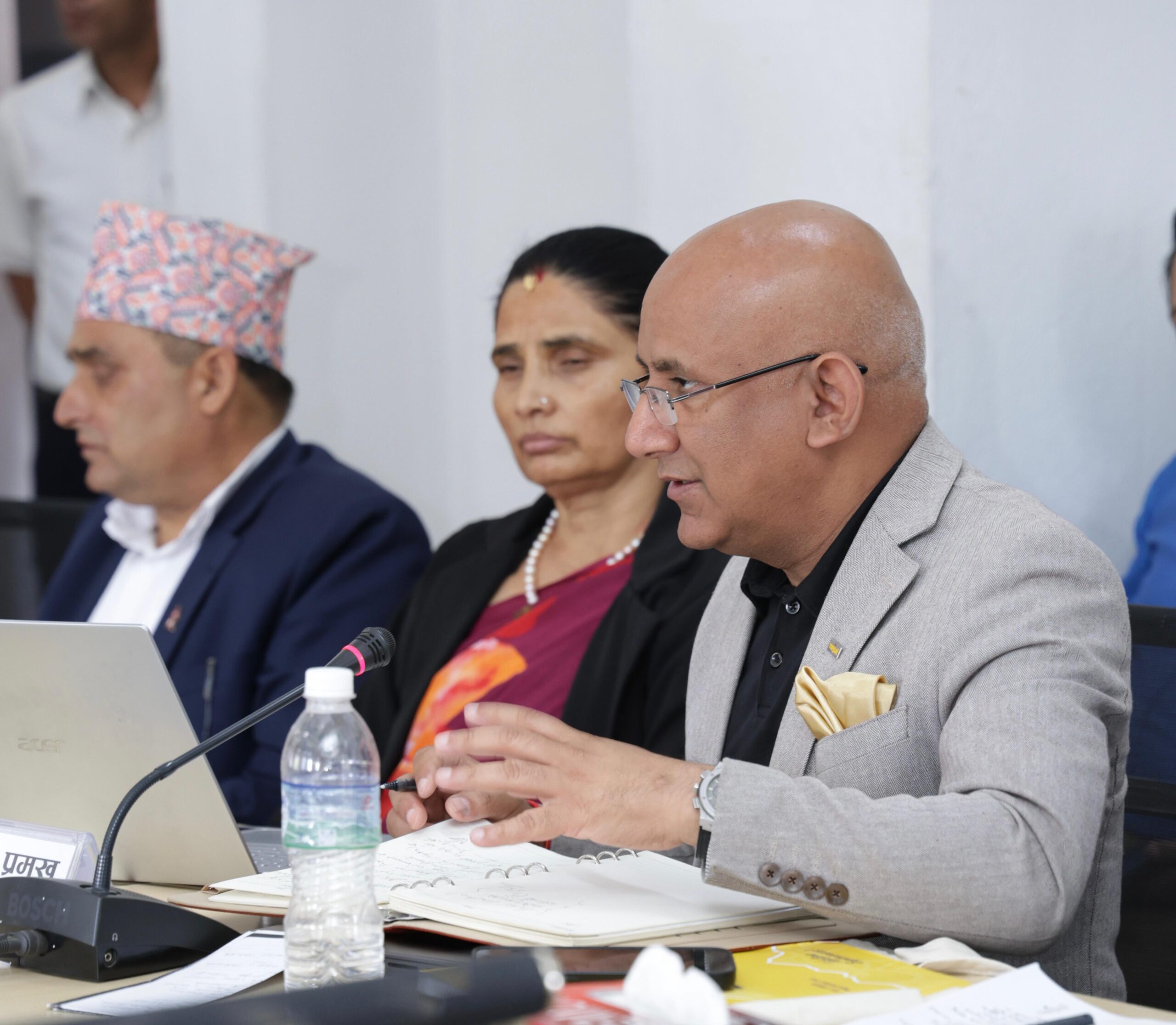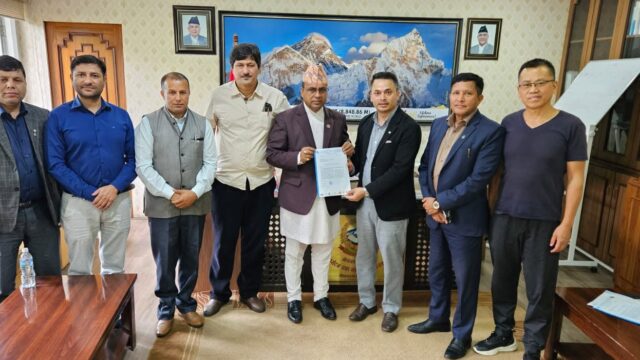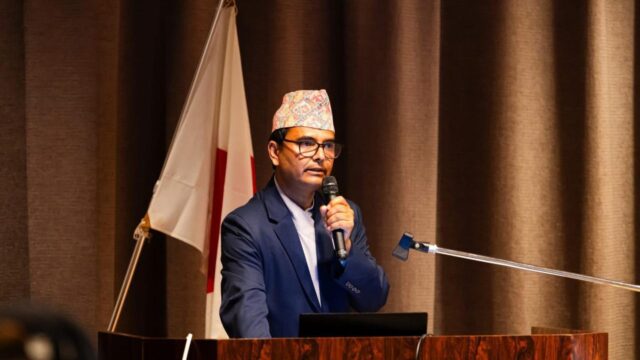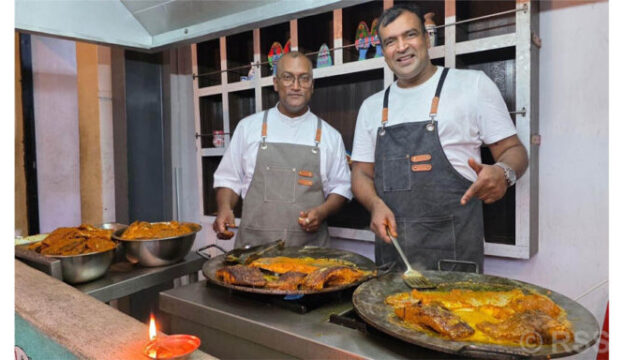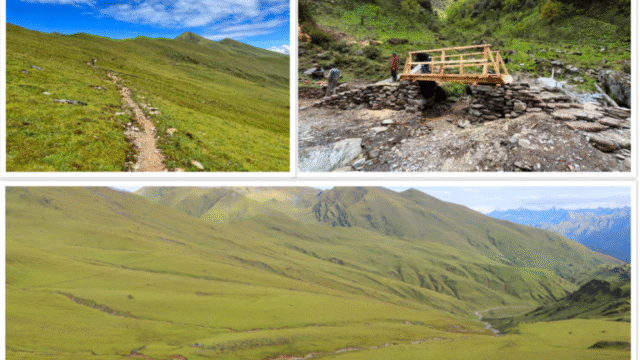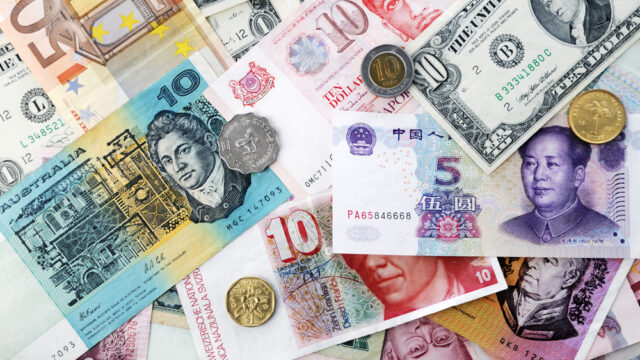The Nepal Tourism Board (NTB) presented a comprehensive briefing to the International Relations and Tourism Committee under the House of Representatives on Wednesday, addressing the current state, progress, and future strategies of Nepal’s tourism sector. The meeting, held at the committee hall in Singha Durbar, was led by NTB Chief Executive Officer (CEO) Deepak Raj Joshi, who outlined key achievements as well as ongoing challenges faced by the sector.
CEO Joshi reported that during the current fiscal year 2081/82 (2024/25), the tourism industry generated revenue of NPR 9.335 billion, with an ambitious target set to increase this figure to NPR 13.2 billion in fiscal year 2082/83 (2025/26). He highlighted the Board’s active participation in over 25 international tourism fairs across key global markets, including the United States, Europe, China, India, Bangladesh, Southeast Asia, and the Middle East. More than 333 Nepali tourism businesses showcased Nepal’s tourism products and services at these events, enhancing the country’s visibility on the international tourism map.
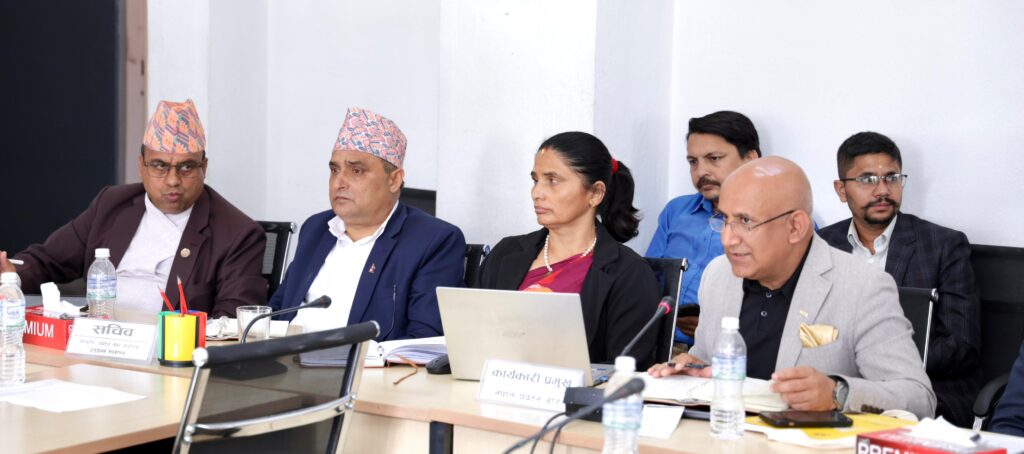
Promotion Efforts and Capacity Building
The NTB has been collaborating closely with Nepali embassies abroad to organize 15 destination promotion programs, bolstering Nepal’s diplomatic efforts to support sustainable tourism development. The Board has also initiated the “45 Destination Classification Program” aimed at improving tourism standards nationwide. In addition, various capacity-building initiatives are underway, including training in homestay management, hotel operations, trekking and rafting guides, nature guiding, language skills, package development, and digital marketing. These efforts are designed to strengthen the skill sets of tourism personnel and enhance service quality.
On the domestic front, NTB facilitated around 40 local events such as cultural festivals, food fairs, and adventure tourism celebrations to stimulate internal tourism growth. Special promotional campaigns targeting Indian tourists were also launched during the Kumbh Mela festival, recognizing the potential of religious tourism.
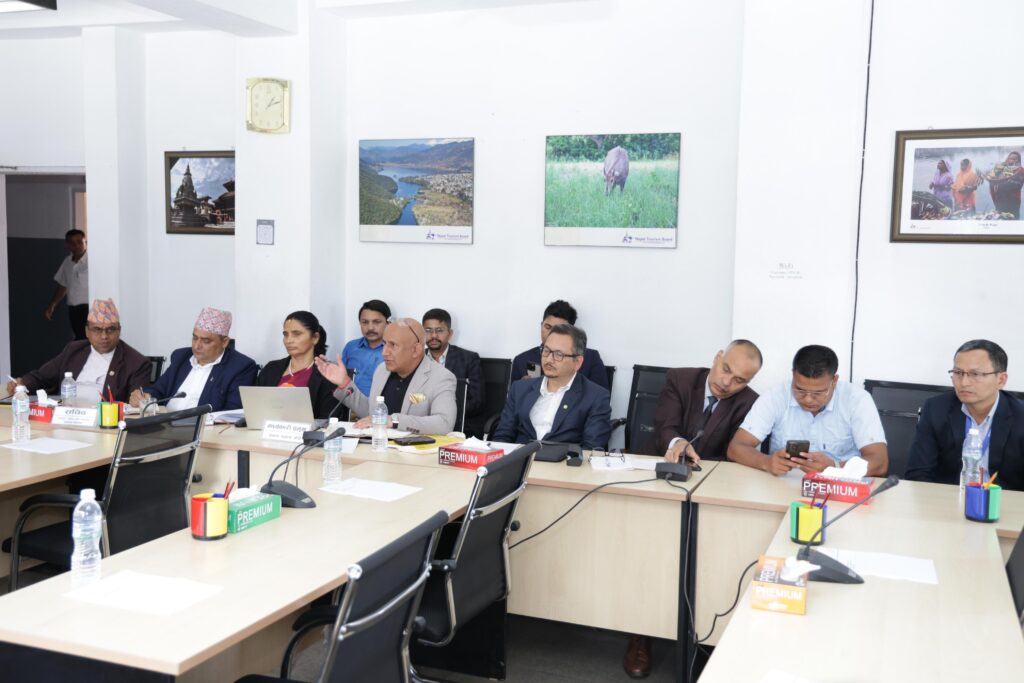
Structural and Systemic Challenges
Despite the positive strides, CEO Joshi acknowledged persistent structural and systemic challenges undermining the tourism sector’s full potential. Key issues include inadequate basic infrastructure in key destinations, the absence of clear destination promotion strategies, a shortage of skilled manpower, concerns about tourist health and safety, weather-dependent tourism trends, weak institutional sustainability, policy instability, and a lack of high-quality tourism products.
Furthermore, Nepal faces growing international competition and the changing psychology of travelers, requiring a strategic shift to keep pace with global trends. Joshi emphasized the need for Nepal to adopt a new vision positioning itself as “the world’s most experiential and memorable destination.”
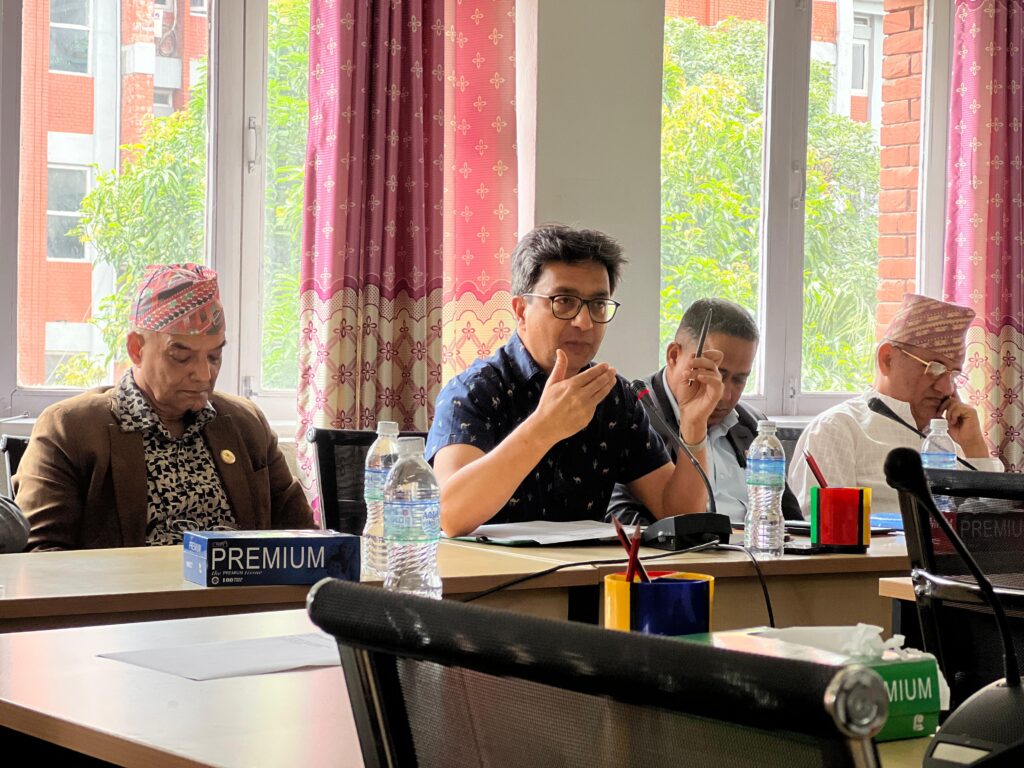
Strategic Focus and Infrastructure Development
The Nepal Tourism Board has laid out strategic pillars focusing on expanding demand in Asian markets while protecting traditional ones, enhancing digital capabilities, encouraging quality investment, diversifying tourism destinations, improving tourism products, and reforming regulatory frameworks. Attention is also given to labor skill development, regional participation, industry resilience, productivity enhancement, environmental responsibility, and sustainable development.
Infrastructure improvement remains a priority, with particular focus on key tourism corridors such as Kathmandu–Pokhara, Narayanghat–Butwal, Dhulikhel–Ramechhap, Rasuwa–Kerung, and Butwal–Palpa–Pokhara. The Board aims to improve road networks and facilitate direct international flights, streamline helicopter operations, and maximize utilization of Gautam Buddha and Pokhara international airports. Promoting air sports is also part of the Board’s agenda.
Long-Term Tourism Goals
The NTB has set ambitious long-term targets, aiming to attract 2.5 million international tourists annually, generate 1.4 million jobs, and achieve tourism revenue of NPR 250 billion in the coming years. These goals reflect the Board’s commitment to significantly elevate Nepal’s tourism sector’s contribution to the national economy.

Government Support and Parliamentary Commitment
Culture, Tourism and Civil Aviation Minister Sudan Kirati lauded the NTB’s initiatives during the committee meeting, reaffirming the ministry’s commitment to policy and structural reforms that support tourism growth. Minister Kirati emphasized the importance of fostering private sector confidence and said, “We are working to facilitate the private sector through the Tourism Board, and they are becoming increasingly confident and enthusiastic. The Board also serves as a think tank and will continue advancing strategically.”
Committee members, including NP Saud, Uday Shamsher Jabara, Dhawal Shamsher Rana, Prem Suwal, Bhim Acharya, and Shishir Khanal, expressed their dedication to assisting in resolving tourism promotion challenges. Committee Chair Raj Kishor Yadav urged the Tourism Board to prioritize its problems and requested government attention on procurement regulations, infrastructure development, and improving road and air transport accessibility.
